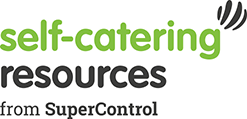Stage #2: PLANNING
According to Google the average traveller visits over 20 different travel websites before they commit to making a booking. In Stage #2: Planning, we look at five ways to encourage people to remember and revisit your website when they are planning their holiday.
1. Make it easy
Do what you can to make the experience of visiting your website as easy and straightforward as possible. Look at the visitors’ journey – from landing on your website, to checking out the property, availability and price, to finding out how to book or contact you – is it logical? Do you include Calls To Action that stand out and get noticed? Ask friends to try it out (and ask them to be honest!), did they find it easy to navigate their way around your website? Could they find what they were looking for?
2. Search Engine Optimisation (SEO)
SEO your website so that when people do a Google search your site can compete in the rankings. Do some keyword research to find out what words and phrases people use when searching for holiday accommodation that you provide; then include those words in the content of not just your website but also your social media, emails, and any other communication channels you use. If you’re struggling to compete with the big portal sites, focus your attention locally on specialist keywords. What differentiates your property from others in your area? If you can say e.g. ‘dog friendly’, ‘with pool’, ‘with open fire’ or ‘fully enclosed garden’ (or even all 4 of these) this helps you stand out from the competition. By identifying the added value that your accommodation has to offer, you can communicate a direct message to a carefully identified target audience.
3. Be visible on as many platforms as you can manage
Create an online presence that will get you noticed in a competitive market. Listing your property on multiple sites will make you more likely to appear on at least a couple of the twenty or so websites visitors look at during the planning process. In addition to your own website, review sites and social media also contribute to your visibility which means that it doesn’t have to be expensive. You might be on Facebook, maybe Twitter, but what about YouTube? Two thirds of video-viewing travellers watch travel videos when choosing a destination (source:Google Think Insights), will they find you? Encourage people to interact with you, to comment on your posts and blogs, join in conversations or share your Facebook pictures and YouTube clips, and make sure that all of these channels link back to your website (and your website links to them); this will also help your Google ranking (see point 2).
Google Places is another free resource. After paid listings Google Places markers are the next results to appear in searches. Utilising this platform (contact details, website address etc.) enables visitors to investigate you and the area you are situated in, giving them the bigger picture of everything that staying at your self-catering property has to offer.
4. Accurate and up-to-date information
Regularly check your listings on marketing and advertising websites and portals. Do they showcase your property fittingly? If you have redecorated make sure you update the photos on all of the websites your property appears on; if you’ve changed your prices, have you updated them on other sites you list on too? Be consistent across all of your marketing channels. We make it easier for you by integrating with many website and portals to automatically update prices and availability, saving you valuable time.
Does your website include a local guide of things to do in the area? Do links from your site to others work? Have you added new eateries or attractions that have opened recently? This all contributes to the overall holiday experience you offer, make sure you keep it current. As well as providing key information to visitors, it’ll also help your ranking (discussed in point 2) by providing fresh content for your site, which Google loves.
5. Manage your online reputation
It is important that you have the opportunity to respond to comments that are posted online about your self-catering accommodation. You can set up Google Alerts to find out when and where you have been mentioned, giving you the chance to respond promptly and professionally. If you use Facebook and Twitter, programmes such as HootSuite or TweetDeck are really useful management tools. Instead of only seeing your own timeline, with these you can set up feeds to e.g. your company or property name (even your web domain, twitter name etc.) so that you can monitor what is being said, and reply or comment when someone mentions you. You can also set up feeds to any word or phrase that may get discussed e.g. self-catering, holiday, cottage or any word or phrase that you want to join in a conversation about.
This can all come across as very time-consuming, but it really is increasingly important to try to find time to stay up-to-date with this area of marketing. People rely on searches, recommendations and trusted sources when they are choosing where to book their holiday. It is important to do what you can to get noticed.
Once your online presence is noticed during the planning process, it gets easier. The next stage of Google’s 5 Stages of Travel is Booking.



